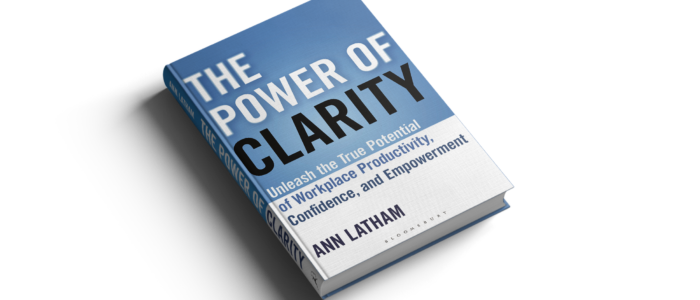I am so honored and appreciative that these amazing, busy people took the time to read my newest book and provide an endorsement!
Everyone knows clear roles and responsibilities are important, right? That’s why we write job descriptions. That’s why managers work so hard to set expectations. That’s why smart employees make an effort to clarify those expectations. Clear roles and responsibilities matter! Unfortunately, we aren’t doing enough. These techniques simply aren’t adequate.
We are outraged. We are outraged when we see someone without a mask. Outraged when asked to wear a mask. Outraged with every headline. Outraged by every comment on social media. Outraged before breakfast. After lunch. During dinner. In our dreams. It’s an epidemic. And I’m convinced our outrage is more destructive than the coronavirus. How Destructive Is Outrage?
The Decision Book exercise led to a fascinating discussion with another of my colleagues. I related my experience to-date and suggested he give the experiment a try. We both acknowledged that there was no reason to fill a Decision Book with commitments to clients because those are a given. Accountability isn’t an issue. We always meet those commitments. My friend went on to suggest the same is true of any decisions he makes that promise something to someone else. He always delivers. Period. I agreed. So if we don’t put commitments to others in a Decision Book, that only leaves commitments that we make to ourselves! I asked my colleague what kinds of commitments he makes to himself. I was met with a lot of silence. At first, he suggested that if the decisions listed in the book have to be true commitments to himself, he would likely leave the book empty because he isn’t very good at keeping commitments to himself. That’s when he had the big ah-ha.
I often help clients make complex and important decisions. Strategic planning, significant changes, and sensitive issues are the main situations where I am brought in. Inevitably, this includes working with a group of leaders who are the decision-makers and whose buy-in is critical to success. My clients are often amazed at how quickly I can extract significant insights and guide a group to critical decisions that they all support with great enthusiasm and commitment. Want to know my secrets?
August. Our last full month of summer here in the Northern Hemisphere. This got me thinking back to my corporate days. Sitting in my climate controlled office. Not always anywhere near a window. Sometimes I forgot what month it was. Not in relation to all my deadlines, of course. Just in relation to the seasons. It was always the same inside. When I left in the evening, there were times when I was actually surprised by what I encountered. Darkness vs. light. Heat vs. frost. Seasons slipped by as quietly as the fair weather clouds. Does this happen to you? In an era where the word mindfulness is never more than a few dozen words away, it really shouldn’t. But does it?
A headline caught my eye the other day. I don’t remember where or what it said. All I remember is that it contained the phrase “actionable strategy.” And it has bothered me ever since. So what could “actionable strategy” possibly mean? Perhaps more importantly, what does it mean to have a strategy that is not actionable?
The Roto-Rooter man was standing on the downhill side of the overflowing sewer access plug in front of our condo. He thought nothing of being in the flow and dropping his tools at his feet. I thought a lot about it. Eeww!
When you think of productivity tools, you probably think of apps and other technological tools. Unfortunately, apps are not the route to greater productivity. As a matter of fact, technology often consumes more time than it saves. Here are my 13 favorite productivity tools, none of which require technology and all of which increase productivity:


